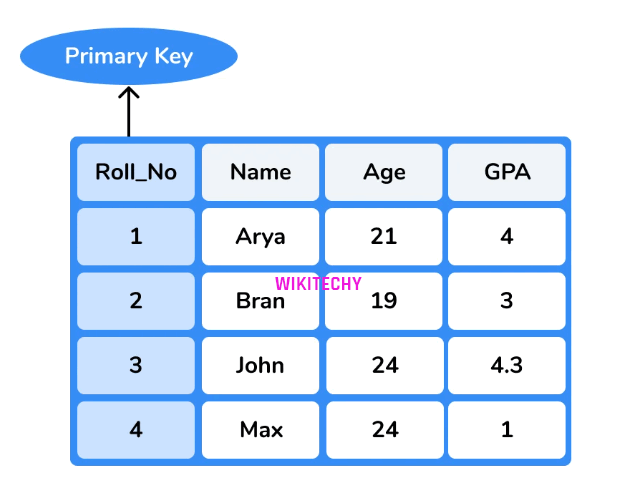- In relational database primary key is a specific choice of minimal set of attributes that uniquely specify a relation.
- Primary key is a special realational database table column key that uniquely identifies a table record.
- In a table if primary key needs to be created then we have to define a primary key constraint when you create or modify a table.
- When multiple coulmns are declared as primary key then it is called as Composite key.
- A table should not contain more than one primary key.
A primary key’s main features are:
- It must contain a unique value for each row of data. A table can have only one primary key constraint
- It cannot contain null values.
- Every row must have a primary key value.
- It enforces the entity integrity of data.
- Primary key always has a unique data.
- Primary key length cannot be more than 900 bytes.
- Primary key cannot have a null value.
- Duplicate values are not allowed in primary key.
- A primary key might use one or more fields already present in the table, or a unique field can be created to be the primary key.

